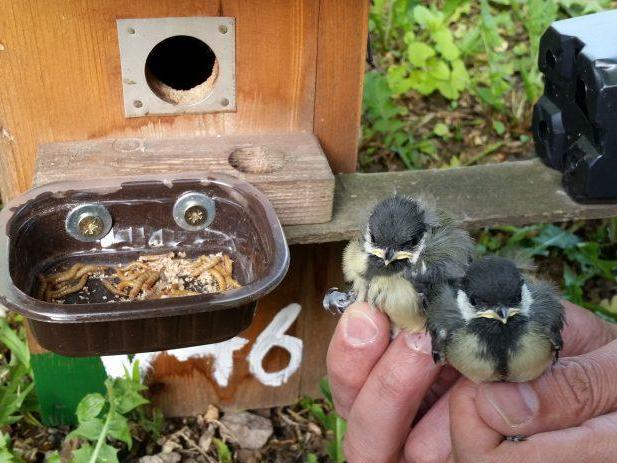Providing an insect-rich diet instead of just nuts and seeds to urban songbirds can boost their populations in cities, a new study suggests.
Researchers found that feeding urban great tits with insects like mealworms, which are high in protein and fat, dramatically increased their breeding success – in some cases, to the same rates as their forest-dwelling counterparts.
A study published in the British Ecological Society’s Journal of Animal Ecology has become the first to suggest that access to an abundance of nutritious food during developmental stages can help city-dwelling great tits overcome the challenges of living in urban areas.
Great tits are one of the most common and most vocal of the songbird species in Europe and Asia. Their green and yellow colours and high-frequency songs make widespread appearances in gardens throughout the UK.
The study found that chicks gained two grams in body mass when provided with additional high-quality food and as a result, had better breeding success as adults.
Lead author Dr Gabor Seress, of the University of Pannonia in Hungary, said the weight gain represented 15 per cent more compared with chicks who did not receive extra food.
“This is a substantial difference,” he said. “This greater body mass when leaving the nest may increase the chicks’ chance of surviving to spring and breeding themselves.
“Most songbirds require an insect-rich diet to successfully raise many and vigorous young, and urban areas generally support fewer insects than more natural habitats, especially caterpillars, which are key components of the optimal nestling diet for many species.”
The team studied great tits in nest boxes at urban and forest sites in Hungary, with control groups in both sites where the birds did not receive any additional food. During the rearing period, nestlings were provided with nutritionally-enriched mealworms and their size, weight and survival rates were recorded when they were 15 days old.
However, the researchers acknowledge that artificially providing insect-rich food in the form of mealworms in bird feeders is not the best or most sustainable solution. Instead, they say encouraging green practices like planting trees to increase insect populations will benefit both insect-eating birds and people.
Dr Seress said: “Instead of directly supplying high-quality bird food to enhance urban birds’ breeding success, we believe that management activities that aim to increase the abundance of insects in the birds’ environment, would be more effective.
“Insects are the cornerstone of healthy and complex ecosystems and it is clear that we need more in our cities.”
Dr Karl Evans of the University of Sheffield, who co-authored the research, said there was a need for more research into the impact of reduced insect populations in cities.
He said: “There is a clear need for additional research to understand which of the many aspects that differ between urban and more natural areas causes the reduced abundance of insects in our cities and towns.
“This is essential in order to improve the habitat quality of urban environments for nesting birds.”
Urban insect populations would need to more than double in size for great tits in cities to have the same breeding success as those living in forests, the study determined.


Join our commenting forum
Join thought-provoking conversations, follow other Independent readers and see their replies
Comments